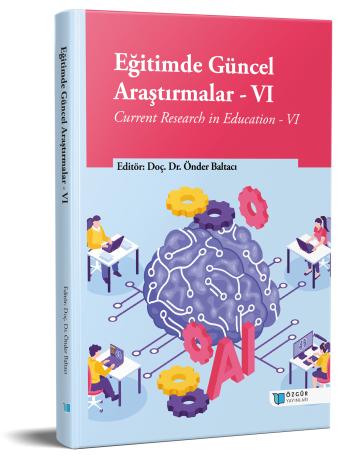
Uzamsal Kavramların Öğretiminde İşbirlikli Artırılmış Gerçeklik Ortamları
Şu kitabın bölümü:
Baltacı,
Ö.
(ed.)
2023.
Eğitimde Güncel Araştırmalar - VI.
Özet
Bu bölüm, uzamsal yetenek ve matematik öğreniminde artırılmış gerçeklik destekli işbirlikli öğrenme ortamları üzerine odaklanmaktadır. Uzamsal yetenek yalnızca matematik derslerinde değil günlük yaşamda da sıklıkla kullanılan bir yetenektir. Günlük yaşamda, bireyler yer veya nesne hakkındaki düşüncelerini uzamsal yetenekleri çerçevesinde anlatırlar. Bu nedenle uzamsal yeteneğin geliştirilmesi için düzenlenen öğretim ortamlarında konuşma, ifade etme, ortak çalışma ve farklı bakış açılarını inceleme önemli görülmektedir. İşbirlikli matematik öğrenme ortamlarında öğrencilerin dikkatini konuya odaklayan için zorlayıcı ancak eğitici görevler kullanılarak uzamsal yeteneklerini sergileyebilecekleri etkinlikler tasarlanmalıdır. Bu etkinliklerde hem somut hem de sanal materyallerin kullanımı önemli olarak görülmektedir. Somut materyallerin katı yapısı, çeşitlilik sunmada sınırlılıklara neden olmaktadır. Teknoloji, bu sınırlılığı dinamik ve etkileşimli materyallerle doldurabilir. Özellikle Artırılmış Gerçeklik (AR) teknolojisi, öğrencilere klavye ve fare yerine vücut hareketleriyle etkileşim imkanı sunarak gerçek sınıf ortamını sanal nesnelerle birleştirerek eğitim ortamlarını zenginleştirir. AR destekli işbirlikli öğrenme ortamlarının özellikleri, etkileşim, aktif öğrenme süreci ve öğretmenin aktarıcı rolü şeklinde tanımlanmıştır. Sonuç olarak, AR destekli işbirlikli öğrenme ortamları, somut materyallerin doğallığını ve teknolojinin dinamizmini birleştirerek, etkileşimli ve doğal bir öğrenme deneyimi sunmada önemli fırsatlar sağlamaktadır.

